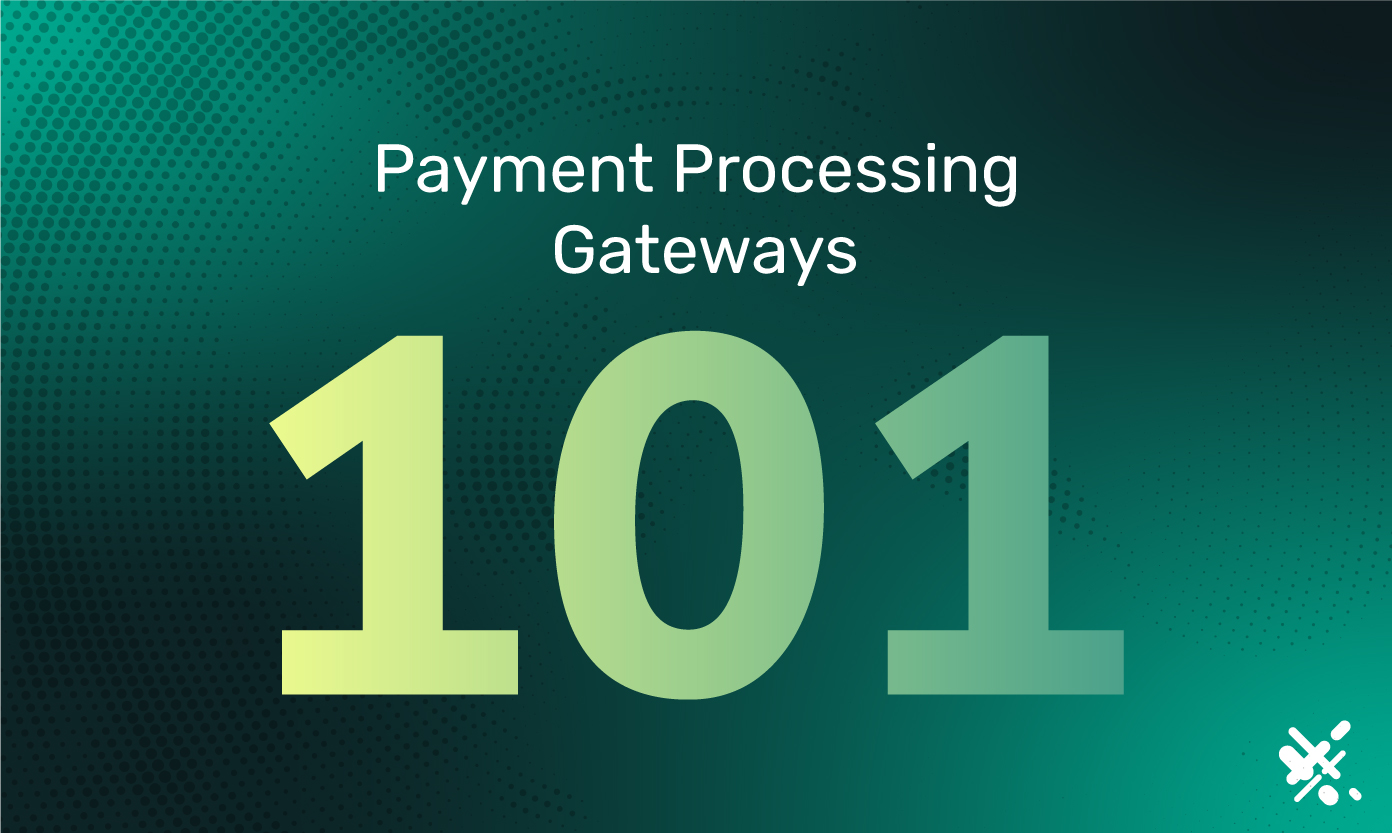If you’re new to credit card processing or merchant accounts, you’ve likely been researching the topic and browsing various payment providers websites to learn more. A lot of the information can seem a bit overwhelming at first. One common topic people come across is regarding payment processing gateways.
There is often confusion about what a payment gateway is and what exactly it does. There is also confusion over the differences between the payment gateway and the payment processor.
However, it’s important to understand what a payment gateway is and the different options you have as a merchant when choosing one. Understanding these differences will help you choose the right payment gateway to better match your needs.
By doing this, you’ll have smoother processing, possibly lower fees, and happier customers. So below, we’ll go over credit card processing 101 and how payment gateways make much of it possible.
What is a Payment Gateway?
A payment gateway is an integral part of the total transaction flow when processing credit cards. The transaction flow describes the entire process starting from when a customer enters their credit card information with a merchant, through approval, and finally to when the funds are moved to the merchant account of the business. If using an instant settlement payment gateway, the funds can be immediately withdrawn.
This may seem like a simple process. But there are many entities involved and each must communicate with each other quickly and securely.
This is where payment gateways come into play. They essentially work as the backbone to facilitate this secure communication between the merchant and all the banks and entities along the route of the transaction flow.
So let’s look at the entities involved in a typical credit card transaction.
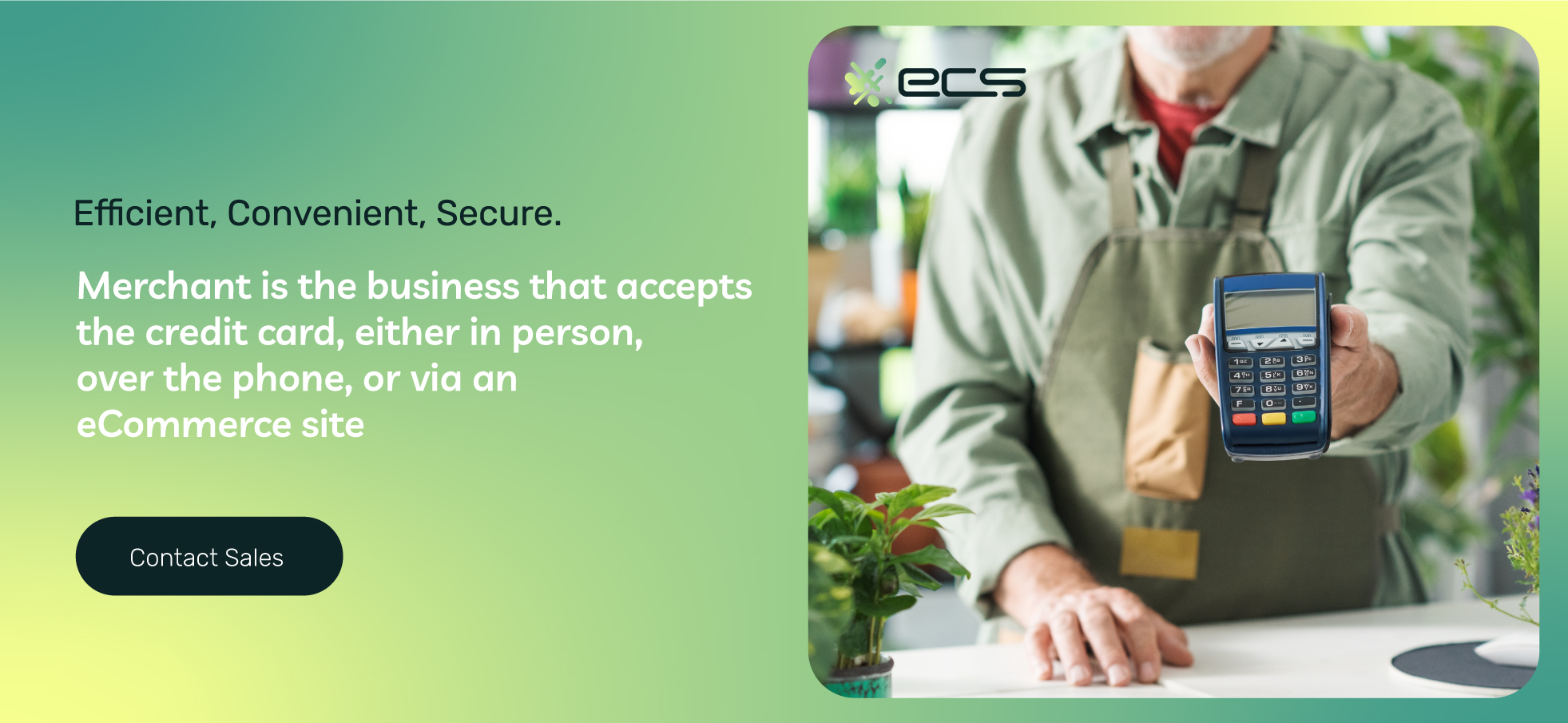
Merchant or Business
This is the business that accepts the credit card, either in person, over the phone, or via an eCommerce site. The transaction flow is the same for all types of businesses. The only difference is with how the card information is first captured. From that point on, the transaction flow is mostly the same.
Retail locations will capture card data via POS (point of sale) hardware, while eCommerce will do so via a secure checkout page.
Acquiring Bank or Payment Processor
This will be the entity that the business or merchant obtains their merchant account from. The acquiring bank or payment processor helps to process payments for merchants and also manages their merchant accounts. Generally, payment gateway access is resold through the payment processor.
When a merchant applies for a merchant account through a payment processor, they will then also be given access to the payment gateway offered by the payment processor. Some payment processors, such as ECS Payments, offer merchants access to different gateways so they can choose which one is best for their business and processing needs.
Credit Card Schemes
These are the major credit card companies that run the payment systems that you’re likely already familiar with. They include companies like MasterCard, Visa, American Express, and others.
Issuing Bank
The issuing bank is the individual bank or institution that issued the credit card to the cardholder making the purchase. They are contacted during the transaction flow to determine if the card is legitimate and that funds or credit are available on the account to complete the purchase.
Payment Gateway
The payment gateway is what essentially ties all of the above entities together. It acts as the conduit that moves the credit data along to each of these entities as it is approved, checked for fraud, and finally authorized or denied for the purchase.
The payment gateway facilitates the flow of information to these entities and then back to the merchant. As you can see, the payment gateway is the backbone of this whole process. That’s why it’s such an important piece of the transaction flow. It also means that merchants need to take special care when choosing a payment gateway. Essentially, it impacts every part of processing.
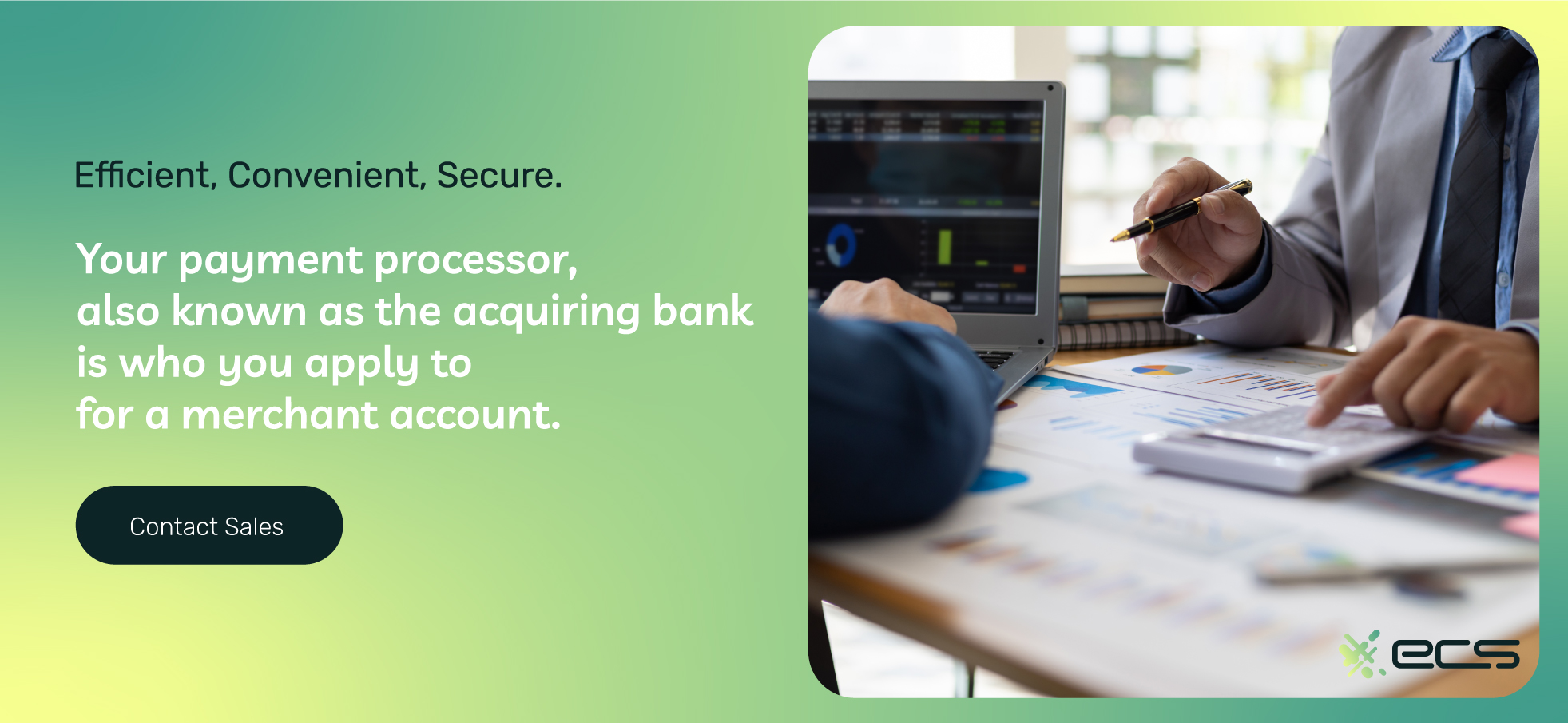
Payment Gateway vs Payment Processor
These two terms are often mixed up by those who are looking for a merchant account or are new to credit card processing in general.
Your payment processor, also known as the acquiring bank is who you apply to for a merchant account. Your payment processor offers payment solutions, including access to a payment gateway.
The payment processor also works with you personally to determine what features you need other than just basic credit card transactions. This may include things such as the ACH or eCheck services.
A payment processor will also work with you to determine your risk level. Which is something the card issuers keep a close eye on. By learning about your business and your estimated processing amounts, they can help you get the best rates based on your risk profile as seen by the banks.
This also includes if you are a high-risk merchant. The banks have deemed certain transactions and industries to be high-risk. Meaning they have a higher incidence of fraud, chargebacks, or returns.
Only certain payment gateways work with high-risk merchants. So having a trusted payment processor who can work with your business to find the right payment gateway is critical.
If you’re a high-risk merchant, contact ECS Payments. We are a trusted high-risk payment processor and can find you the right payment solutions to maximize your sales and revenue.
Overall, a payment processor offers you a complete processing solution and merchant account, which includes access to a payment gateway.
How The Payment Gateway Works
We just explained the important part that the payment gateway plays in the overall transaction flow. So now it’s time to dive in and explain how the payment gateway actually works and what is going on behind the scenes as it handles data back and forth from the merchant to banks.
We’ll be using an eCommerce purchase as an example. But the only difference between this and a POS (point of sale) transaction is how the card information is captured.
Step 1
The customer will go to the checkout page of the merchant’s website and be asked to enter their credit card information to buy the selected goods or services. At this point, the merchant will already have a secure page to capture that data and hand it off to the payment gateway when ready.
The card number, verification data such as expiration date and CVV, as well as the billing address and transaction amount are all captured.
Once the website hands over that data to the gateway, the gateway encrypts it and also performs an initial fraud check. Each gateway can vary slightly on this fraud check. But generally, they check the card against various filters to ensure it is valid and not blacklisted or flagged.
One important note is that some gateways offer hosted payment pages for merchants. For these, the customer finalizes their checkout process on a page hosted by the gateway. If this is used, then there is no handoff of data and the customer gives all of their information directly to the gateway.
This can be easier for the merchant from a security standpoint, which is something we’ll touch on later.
Step 2
The data then travels along to the payment processor. They may perform another level of fraud or risk analysis depending on various factors. The payment processor then routes the transaction through the payment gateway to the appropriate bank. The information is passed along via the credit card networks and each scheme has its own network.
Step 3
The transaction data is then passed to the issuing bank. This is the bank that issued the customer the actual credit or debit card. At this point, the issuing bank confirms it is a valid account and in good standing. It also confirms there are funds available.
The payment is then authorized and the information is sent back the same way it arrived until ultimately getting back to the merchant.
With the transaction authorized, the purchase is completed. The merchant can perform the final settlement of the authorized transaction at a later date. This is generally referred to as “batch” processing. In some cases, an instant payout payment gateway can be set up to run batches many times per day.
As you can see by this transaction flow, the payment gateway serves as the connection between all the players in the transaction and is tasked with keeping the information secure along its journey.
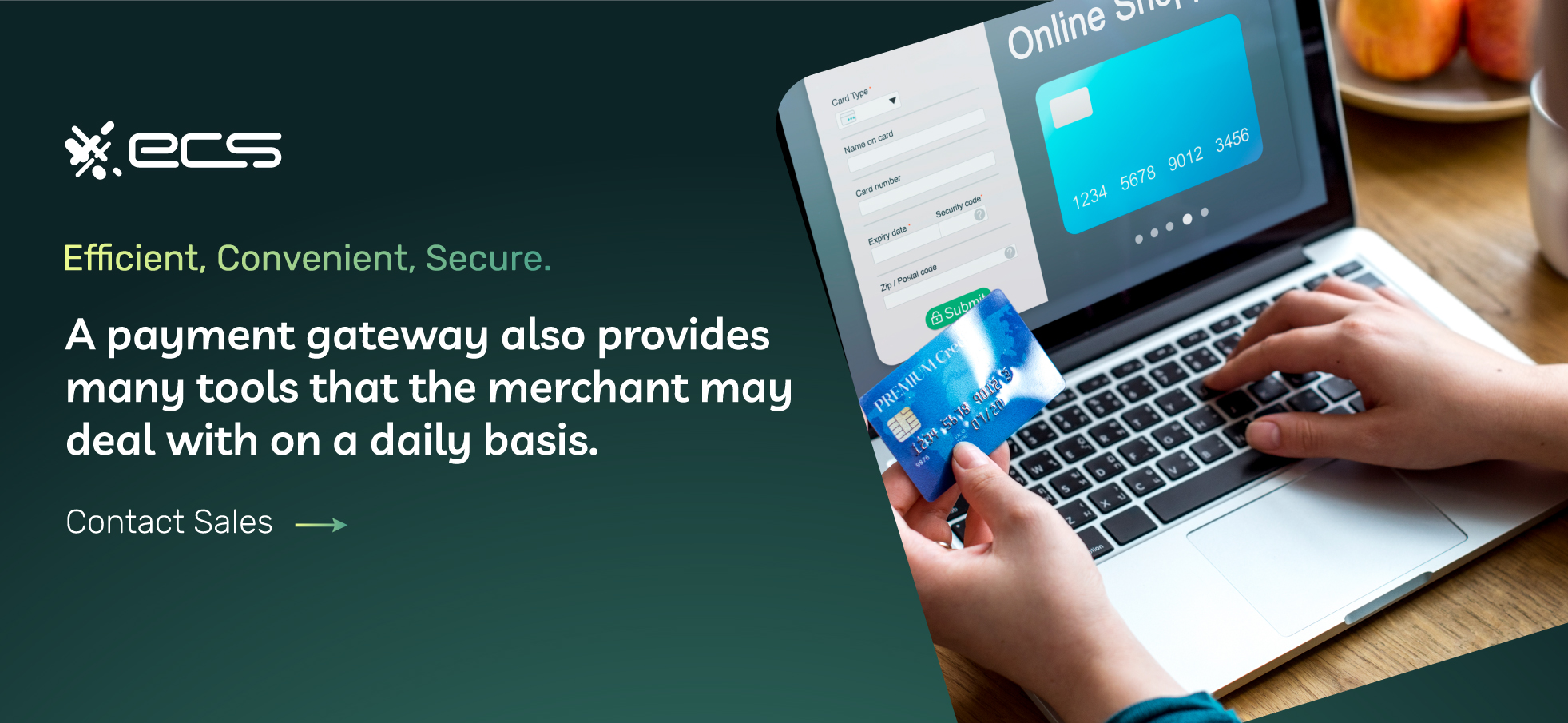
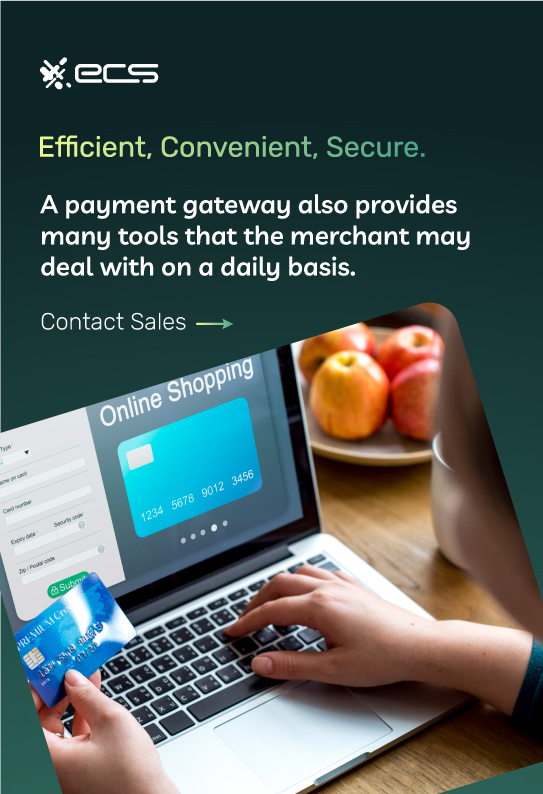
Payment Gateway Tools
So far we mostly discussed what the payment gateway does behind the scenes as far as the transaction flow. However, the payment gateway also provides many tools that the merchant may deal with on a daily basis.
Integrated Payments
Many payment gateways will offer various integrated payment solutions for merchants to use and accept payments from customers in unique ways. These are mostly geared toward eCommerce businesses. But, any business can use some or all of these tools to streamline their payment process.
One example of integrated payments is the ability to send out payment links. Payment links are clickable links that a business can send to customers that when clicked, take the customer to a secure payment page.
With the proper integration, these payment link pages also have the payment information of the customer mostly filled out already. All they have to do is fill in the credit card information to complete the sale or send money.
Another example of integrated payments is hosted payment pages. We touched on this earlier and this allows eCommerce businesses or any business to provide a checkout page that collects credit card information but without the merchant having to host it themselves.
Storing Customer Information
For businesses that rely on recurring billing or memberships, some payment gateways offer tools to make this both easier and more secure for the merchant.
Customer billing information can be stored on servers maintained by the payment gateway and the merchant only accesses them when a payment is needed. This means the merchant doesn’t have to store this data and deal with the security burdens of sensitive data storage.
Payment Gateway Differences
Despite serving the same fundamental purpose, there are different payment gateways available to merchants and it’s important to understand the differences so you can choose the one that offers your business the most payment options.
Compatibility
If you’re currently running specific software for your eCommerce store or plan to, it’s important to ensure the gateway you choose is compatible with those apps.
For example, if you are running a specific shopping cart software program, you want to choose a gateway that integrates the easiest with that shopping cart. For example, the popular gateway Authorize.net would be a good choice for an eCommerce business running Smart Cart within WooCommerce.
This is just a generalized example, and the nature of your specific business may make different gateways a better fit. This is why it’s important to work with a payment processor like ECS Payments which can offer several gateway options to best serve your needs.
API Tools
Advanced eCommerce sellers may need to develop their own real-time payment solutions that work in concert with the gateway. This is done through software development that connects to the gateway’s API.
Different gateways offer different levels of access to their API for customization. They may also offer different features for testing as well as core development features.
If your business needs to develop solutions around payment APIs, the gateway you choose becomes a critical first step as choosing the wrong gateway can lead to development setbacks and delays.
Speed Of Merchant Money Transfers
Different gateways can offer different options for merchants to transfer funds, sometimes referred to as a gateway money transfer.
Generally, a gateway or processor will deposit funds within 3-5 days. But using a payment gateway with instant settlement can be done the same day.
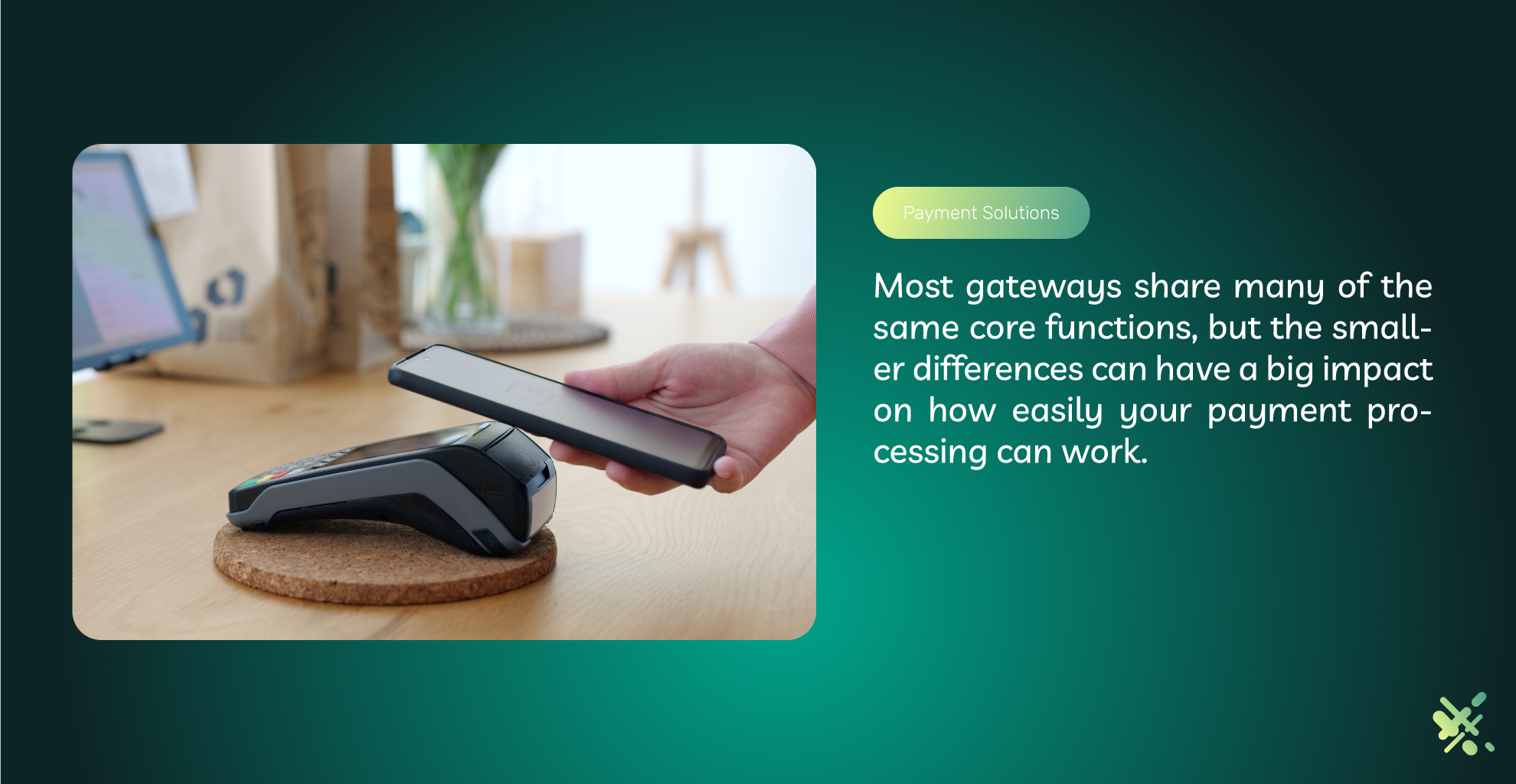
Things To Consider When Choosing A Payment Gateway
Now that you understand how a gateway works and what it can do, it’s time to start discussing how to go about choosing one that’s right for your business.
Most gateways share many of the same core functions, but the smaller differences can have a big impact on how easily your payment processing can work.
eCommerce vs POS
First, you want to consider where you do most of your processing. Are you a dedicated eCommerce business that does no in-person sales or credit processing at all? In this case, you don’t need many of the POS (point of sale) benefits that some gateways specialize in, such as NMI.
With a strictly eCommerce business, you want to focus on the tools you need to integrate easily with your shopping platform.
Those who run a retail location will need a gateway more focused on POS solutions. In this case, you’ll want POS hardware, software, or terminals that can best integrate with your existing business structure. This can also include things like hardware for accepting mobile payments and other newer forms of digital payments as they become available
Next is whether you take phone orders. Certain gateways provide advanced functions for what are known as virtual terminals. These allow customer service representatives to process cards as if it was a POS terminal.
If your business already has an established CRM software or customer sales and support software that it uses, you’ll want a gateway that integrates easily with those programs.
High-Risk Processing
High-risk processing is the sale of any product or service that the card issuers deem to be at greater risk for chargebacks, frauds, or refunds and returns.
There are many high-risk products and industries that fall under this designation, and if your business sells these products or services, you need a payment gateway that supports high-risk processing.
Some high-risk products and industries include:
- CBD products
- Debt reduction services
- Timeshare
- Firearms
- Supplements
- Digital goods
- Coaching services
- Mentoring services
These are just a few of the industries and products that are high-risk.
When processing high-risk products or services, common payment gateways like Paypal or Stripe are simply not an option. Most of these well-known payment services and gateways do support many high-risk products.
If you process high-risk transactions with a gateway that doesn’t support it, you risk losing that account and you will likely have a more difficult time opening a new merchant after a closure.
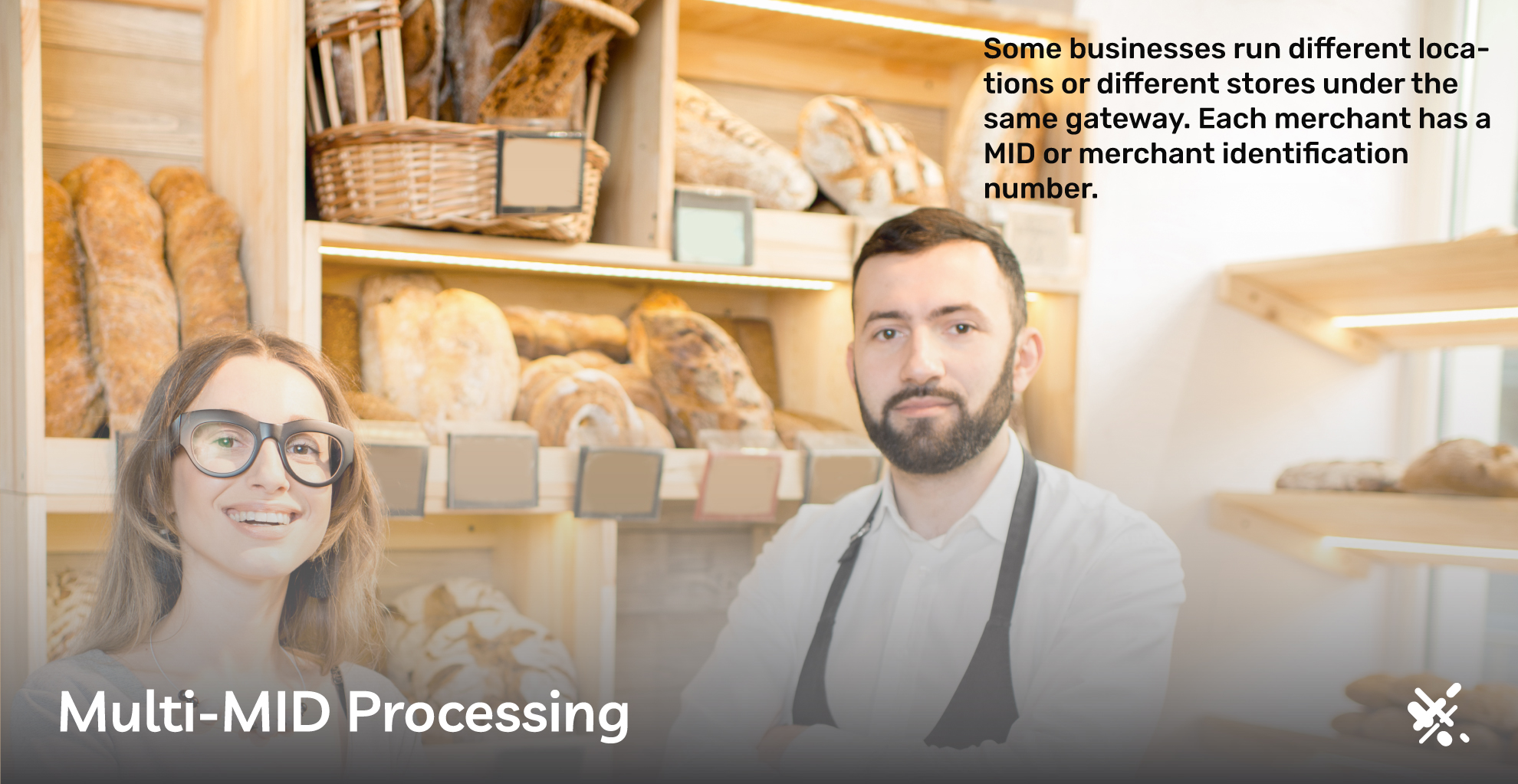
Multi-MID Processing
Some businesses run different locations or different stores under the same gateway. Each merchant has a MID or merchant identification number. If you only run one business with your gateway, this isn’t an issue.
But say for example you run two different stores, one sells clothing while the other sells a high-risk product like CBD supplements. This can be a complex scenario and you want a gateway that offers MID management tools to easier configure your processing.
In this case, a gateway such as NMI would be very useful due to their MID management as well as their high-risk compatibility.
Gateway Support
While your payment processor should be able to provide you with customized support, you may need support directly from your payment gateway provider.
This is especially true if you are integrating complex payment flows or developing for the API to create custom solutions. In this case, the gateway needs to be able to provide advanced technical support and documentation so that your engineers can get answers quickly.
Access Direct Or Through Resellers
Some gateways allow you to deal directly with them to access the gateway. This can work for some, but it’s usually a good idea to go through a trusted payment processor as a reseller. The payment processor provides an added layer of protection and service.
Domestic or International sales
For U.S. business, Some getaways are more focused on domestic transactions while others support many more foreign countries and payments.
For example, NMI supports more countries than some other high-risk compatible gateways.
Gateway Fees And Costs
You’ll want to compare the different gateways and find which ones offer you the best fees depending on your processing volumes and other factors.
Most gateways will charge a monthly fee. There will also be transaction fees as well as a percentage per transaction fee. Chargeback fees and other possible fees should also be considered.
However, it’s important to know that the lowest fees don’t always equal the best gateway for you. A more expensive gateway that has the tools and services your business needs to process efficiently is well worth the extra cost in most cases.
Choosing a cheaper gateway that lacks the integrations and compatibility you require will likely end up costing you more in the long run. Along with the added difficulties of trying to work around the gateway’s shortcomings.
Payment Gateways And PCI Compliance
Payment gateways help merchants stay compliant with PCI DSS regulations. These regulations are a mandatory set of guidelines and practices that all merchants and service providers must follow if they accept credit cards or hold card information.
The PCI Security Standards Council (PCI SSC) is the overseeing body and they created the PCI DSS or Payment Card Industry Data Security Standards.
The Payment Gateways are, of course, PCI compliant. But they also offer tools so that merchants can more easily achieve compliance. By offering various services like hosted pages or integrations, merchants have an easier time staying compliant and managing their own security.
More Information About Payment Gateways and Merchant Accounts
Choosing the right gateway is an important decision when setting up your merchant account.
If you need assistance with this important process, contact the experts at ECS Payments. Our experience in the industry is unparalleled among payment processors. We can offer you several different gateway options to help you find the one that fits your business needs the best.
Whether you run a conventional business or a high-risk business, you need a gateway that works with business. Contact ECS Payments today and let us help you find the right payment solutions your business needs to grow.
Frequently Asked Questions About Payment Processing Gateways
A payment gateway facilitates a secure connection between the merchant, financial institutions, and payment processor during credit card transactions. For more information on how selecting the right payment gateway can benefit your specific business, contact ECS Payments.
Selecting the right payment gateway depends on factors such as compatibility with your existing software and systems, ease of integration, and built-in business tools all play a role. To find the best payment gateway that suits your business’s unique needs, consult with our payment experts at ECS Payments.
PCI compliance protects cardholder data. The card brands require PCI compliance for any merchant processing credit card transactions. Your gateway is subject to tests that inform the card brands of your compliance status. Should merchants remain non-compliant or become non-compliant, they may incur hefty fines. ECS makes it easy for our merchants to become PCI-compliant. Contact ECS Payments for more information on how your business can securely process payments.
Certain industries are more susceptible to fraud and chargebacks. Depending on the nature of your business, you may be processing high-risk transactions, thus needing a high-risk merchant account. Some well-known payment gateways do not support high-risk transactions. The good news is, ECS Payments offers gateways for these types of merchants. If your business falls into this category, contact ECS Payments for your high-risk merchant account and payment gateway.
